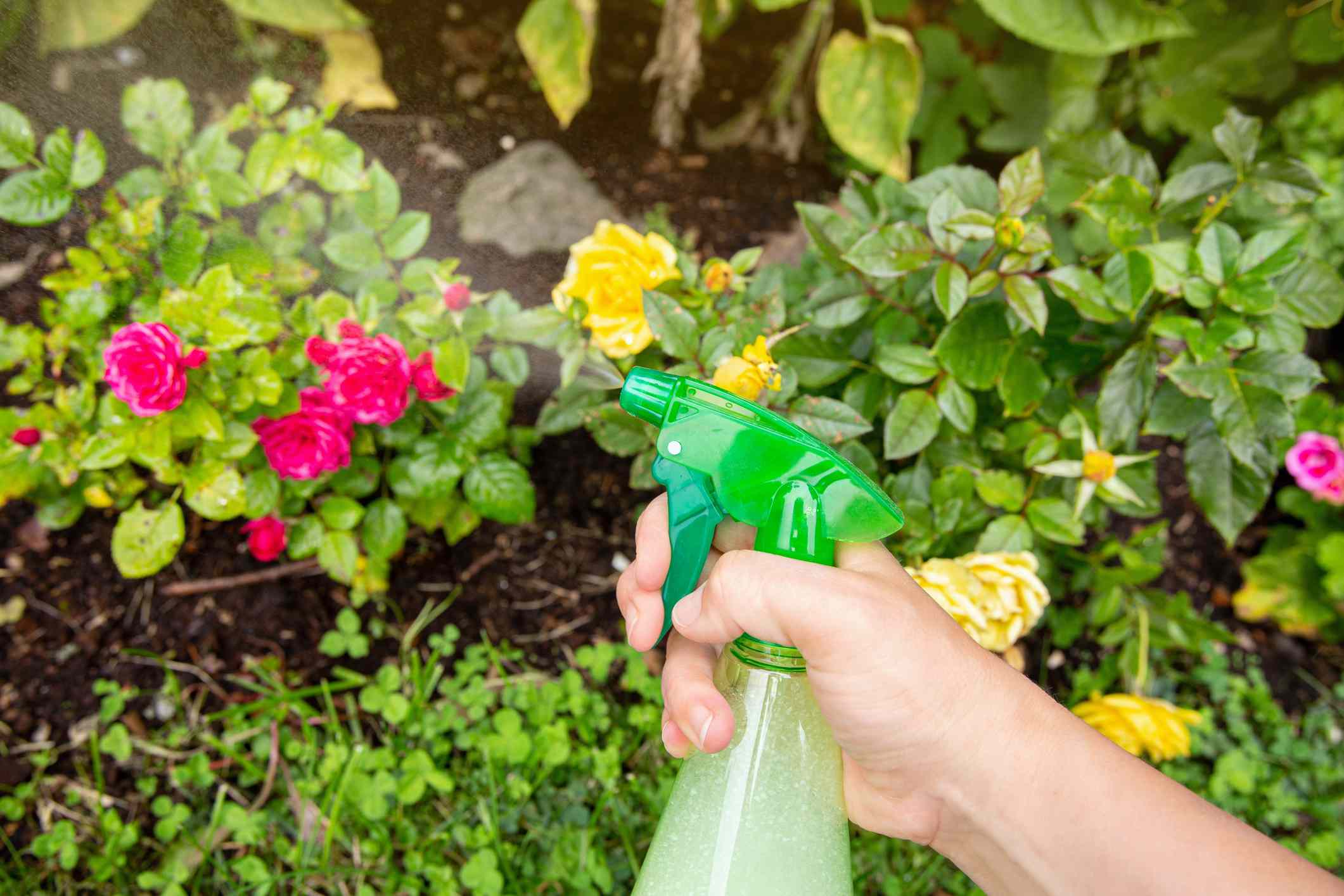Key Points
- Household vinegars have a lower percentage of acetic acid than horticultural vinegars.
- Vinegars with higher percentages of acetic acid are more effective for controlling weeds, but can damage food and ornamental crops and alter soil pH.
- Vinegar desiccates top growth but does not dry out roots. It works by interrupting photosynthesis and starving plants of water and nutrients.
Vinegar has a myriad of uses. So much so that entire books are written about it. For the home gardener, striving to stay organic or avoid harsh chemicals, it serves a number of purposes.
Let’s look at how vinegar works as an herbicide, what kind of vinegar works best, and ways to safely use it in your outdoor space.
Will Vinegar Kill Plants?
Vinegar can kill weeds and is especially effective against young broadleaf weeds. But using it as an herbicide comes with a note of caution. It can also damage desirable plants, including grasses.
It works through desiccation; by drying out foliage and top growth, which interrupts photosynthesis and starves plants of water and nutrients. Coat leaves and stems thoroughly for good results.
Acetic acid is the drying component, so higher percentages have a greater effect. Vinegar works best on small weeds with just two or three leaves. This is a contact herbicide, so roots are not affected.
For established weeds, repeat applications until top growth has died completely or significantly enough to starve the roots. Most grasses bounce back after a slight burn from vinegar.
Use vinegar judiciously around desirable plants. Overuse can alter soil pH and harm beneficial bacteria in the soil. Here are some safe and practical uses for vinegar in your outdoor space.
Want more gardening tips? Sign up for our free gardening newsletter for our best growing tips, troubleshooting hacks, and more!
When It’s Okay to Use Vinegar in the Garden
- Killing weeds in or around driveways, sidewalks, patios, and decks.
- Cleaning used clay and terracotta pots and planters.
- Cleaning bricks, birdbaths, and garden furniture..
- Removing dirt and rust from garden tools.
- Killing snails and slugs on contact.
- Eliminating ants by treating nests and ant trails, or spraying ants directly.
- Spraying the perimeters of flowerbeds to keep pets and animal pests out. Alternatively, place vinegar-soaked sponges along the edges of beds.
- Mixing with sugar and water to make fruit fly traps around berries, brambles, grapes, and in orchards.
Household vs. Horticultural Vinegar
Common household vinegars like white and apple cider vinegar usually have about 5% acetic acid, although this can vary from 4% to 7%. Horticultural vinegar contains 20% to 30% acetic acid. Look for products at big box retailers and garden centers. It may be included as an ingredient in other garden sprays for weeds or pests.
What to Use Instead of Vinegar Near Your Plants
- Insect pests on garden plants: Use a strong spray from your hose, a soap and water solution, hot pepper spray, diatomaceous earth, pyrethrins, or a specific pesticide that targets the offending insect.
- Weeds in gardens and flower beds: Hand pull weeds or use a hoe or other weeding tool. Use boiling water or a torch, with caution. Put down mulch to suppress germination and weedy growth. Use landscape fabric or solarize before planting.
- Protection for seedlings: Use barriers like floating row covers, fencing, cages, and companion plants to keep animal and insect pests away from young plants.
- Adjusting soil pH: Use sulfur to lower soil pH or agricultural lime to raise pH. Or work compost into the soil annually. Testing your soil before making adjustments saves you time and effort.
- Fertilizing: Use organic products like blood and bone meals, fish emulsion, and compost. Or, for a short acting boost, choose a commercial fertilizer with nutrients specific for the plant.
What to Do If You Accidentally Used Vinegar on Plants
- Soil drench: Dilute and flush excess acid out with deep watering. For potted plants, flush repeatedly, allowing water to drain in between. Do not repot as this can add to plant stress.
- Prune out damage: Observe plants for signs of damage like yellowing, dying foliage. If necessary, prune off dead leaves to encourage new, healthy growth.
- Neutralize soil: Use baking soda or dolomite lime to correct soil acidity.
- Replace contaminated topsoil: If topsoil is severely contaminated, dig it out and replace it to avoid future problems.
FAQ
-
Occasional use of household vinegar is no longer active in the soil after a few days. Repeated use of vinegar with higher percentages of acetic acid, such as horticultural vinegar, may remain in the soil for several weeks. Overuse of these products can alter soil pH, which is a bigger concern.
-
It depends on the plant and the strength of the vinegar used. Dilutions of household vinegar and water aren’t strong enough to damage many types of plants. However, there are better alternatives for correcting ornamental and food crop problems.










